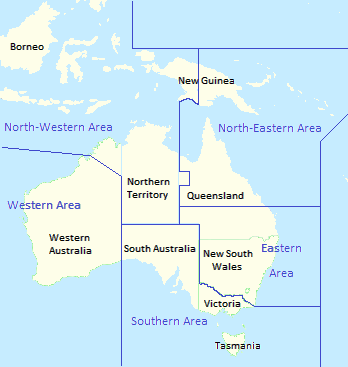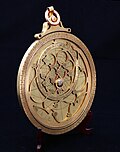Portal:History
The History Portal
History is the systematic study of the past, focusing primarily on the human past. As an academic discipline, it analyses and interprets evidence to construct narratives about what happened and explain why it happened. Some theorists categorize history as a social science, while others see it as part of the humanities or consider it a hybrid discipline. Similar debates surround the purpose of history—for example, whether its main aim is theoretical, to uncover the truth, or practical, to learn lessons from the past. In a more general sense, the term history refers not to an academic field but to the past itself, times in the past, or to individual texts about the past.
Historical research relies on primary and secondary sources to reconstruct past events and validate interpretations. Source criticism is used to evaluate these sources, assessing their authenticity, content, and reliability. Historians strive to integrate the perspectives of several sources to develop a coherent narrative. Different schools of thought, such as positivism, the Annales school, Marxism, and postmodernism, have distinct methodological approaches.
History is a broad discipline encompassing many branches. Some focus on specific time periods, such as ancient history, while others concentrate on particular geographic regions, such as the history of Africa. Thematic categorizations include political history, military history, social history, and economic history. Branches associated with specific research methods and sources include quantitative history, comparative history, and oral history.
History emerged as a field of inquiry in antiquity to replace myth-infused narratives, with influential early traditions originating in Greece, China, and later in the Islamic world. Historical writing evolved throughout the ages and became increasingly professional, particularly during the 19th century, when a rigorous methodology and various academic institutions were established. History is related to many fields, including historiography, philosophy, education, and politics. (Full article...)
Featured picture
Did you know (auto generated)

- ... that Montenegrin historian Radoje Pajović refused to engage in historical revisionism to rehabilitate Chetniks who collaborated with the Axis powers?
- ... that West Auckland is home to the largest stratovolcano in the geologic history of New Zealand?
- ... that new employees of a business headquartered in the Editors Building chose their office decorations from a 7,000-piece collection of historic memorabilia of Washington, D.C.?
- ... that commentators described American wrestler Wyatt Hendrickson defeating an Olympic gold medalist as the "biggest upset in NCAA history"?
- ... that Massachusetts gave the United States its first openly LGBT state legislator to be elected, as well as the first out congressperson and state attorney general?
- ... that according to the official history of the Song dynasty, Zhao Kuangyin's soldiers stormed his bedroom and proclaimed him emperor, to his surprise?
Richard John Bingham, 7th Earl of Lucan (born 18 December 1934 – disappeared 8 November 1974, declared dead 3 February 2016), commonly known as Lord Lucan, was a British peer and gambler who vanished in 1974 after being suspected of killing his children's nanny and attempting to murder his wife.
An evacuee during World War II, Lucan attended Eton College and served with the Coldstream Guards in West Germany from 1953 to 1955. Having developed a taste for gambling, he played backgammon and bridge, and was an early member of the exclusive group of wealthy British gamblers at the Clermont Club. Lucan's losses often exceeded his winnings, yet he left his job at a London-based merchant bank and became a professional gambler. He was known as Lord Bingham from April 1949 until January 1964. (Full article...)
On this day
- 1760 – Seven Years' War: France began an unsuccessful attempt to retake Quebec City, which had been captured by Britain.
- 1770 – On his first voyage, British explorer James Cook and the crew of HMS Endeavour (pictured) landed at Botany Bay, making the first recorded European landfall on the eastern coast of Australia.
- 1945 – World War II: The U.S. Army liberated Dachau, the first Nazi concentration camp, and killed German prisoners of war.
- 1995 – Before a crowd of about 165,000 at the Rungrado 1st of May Stadium, Ric Flair and Antonio Inoki competed in the main event of Collision in Korea, the highest attended professional wrestling event of all time.
- 2015 – The ringleaders of the Bali Nine were executed in Indonesia for attempting to smuggle 8.3 kg (18 lb) of heroin to Australia in 2005.
- George Farquhar (d. 1707)
- Marietta Blau (b. 1894)
- John Compton (b. 1925)
- Giacomo dalla Torre (d. 2020)
Selected quote
My heart is a stone: heavy with sadness for my people; cold with the knowledge that no treaty will keep whites out of our lands; hard with the determination to resist as long as I live and breathe.
— Tecumseh, Native American tribal chief
Related portals
More Did you know...
- ... that the underground Fortress of Mimoyecques (pictured) was built by Nazi Germany to bombard London with 10 shells a minute using the V-3 supergun?
- ... that Howard P. Perry was the first African American recruit in the United States Marine Corps?
- ... that the Chester city walls form the most complete circuit of Roman and medieval defensive town walls in Britain?
- ... that China's first female director was adopted by the first Premier of the People's Republic of China?
- ... that the Medieval Merchant's House in Southampton was being used as a brothel when bomb damage during the Blitz revealed the building's important medieval architecture?
- ... that the Sumerian "river of paradise", the Hubur, derived partly from real geography before becoming a demonic fantasy?
- ... that Bill Foley's photograph "The Last Smile" shows Anwar Sadat only moments before his assassination?
- ... that the 1911 Sarez earthquake triggered a huge landslide, forming the tallest dam in the world?
Topics
Categories

History • By period • By region • By topic • By ethnic group • Historiography • Archaeology • Books • Maps • Images • Magazines • Organizations • Fictional • Museums • Pseudohistory • Stubs • Timelines • Chronology • People • Wikipedia historians
WikiProjects
![]() WikiProject History •
Ancient Near East • Australian History • Classical Greece and Rome • Dacia • Former countries • History of Canada • Chinese history • European history • Heraldry and vexillology • Indian history • Jewish history • Medieval Scotland • Mesoamerica • Military history • Middle Ages • History of Science
WikiProject History •
Ancient Near East • Australian History • Classical Greece and Rome • Dacia • Former countries • History of Canada • Chinese history • European history • Heraldry and vexillology • Indian history • Jewish history • Medieval Scotland • Mesoamerica • Military history • Middle Ages • History of Science
WikiProject Time • Days of the Year • Years
WikiProject Biography • Composers • Political figures • Saints • United States Presidents
Things you can do
 |
Here are some tasks awaiting attention:
|
Associated Wikimedia
The following Wikimedia Foundation sister projects provide more on this subject:
-
Commons
Free media repository -
Wikibooks
Free textbooks and manuals -
Wikidata
Free knowledge base -
Wikinews
Free-content news -
Wikiquote
Collection of quotations -
Wikisource
Free-content library -
Wikiversity
Free learning tools -
Wiktionary
Dictionary and thesaurus





















































